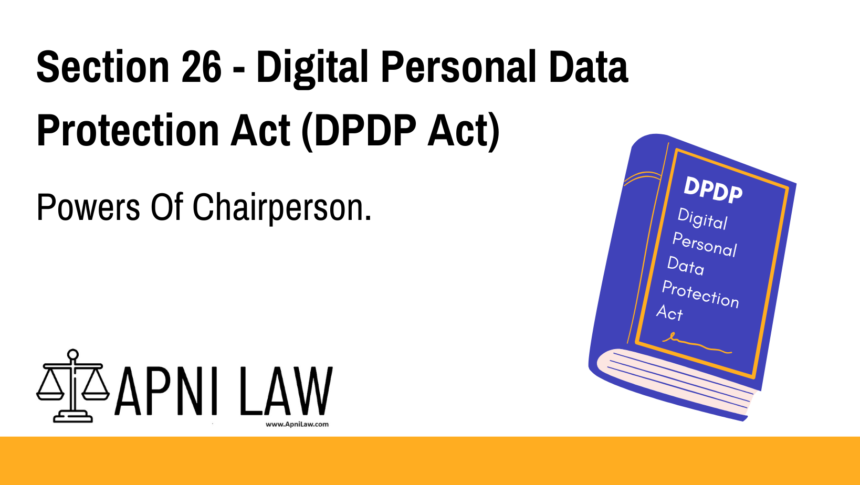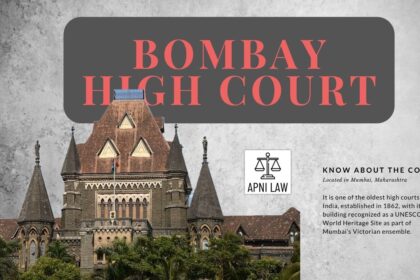Code: Section 26
The Chairperson shall exercise the following powers, namely:—
(a) general superintendence and giving direction in respect of all administrative
matters of the Board;
(b) authorise any officer of the Board to scrutinise any intimation, complaint,
reference or correspondence addressed to the Board; and
(c) authorise performance of any of the functions of the Board and conduct any
of its proceedings, by an individual Member or groups of Members and to allocate
proceedings among them.
Explanation of Section 26 DPDP
Section 26 of the Digital Personal Data Protection Act, 2023 outlines the specific powers and responsibilities of the Chairperson of the Data Protection Board of India. It ensures that the Chairperson has the authority to manage, delegate, and supervise the functioning of the Board effectively.
Key Powers of the Chairperson:
- General Superintendence: The Chairperson oversees and guides all administrative operations of the Board.
- Delegation of Review: The Chairperson may empower Board officers to examine incoming complaints, references, and communications.
- Distribution of Work: The Chairperson can assign cases or functions to individual Members or groups, enabling efficient handling of Board matters.
These powers are essential for streamlined functioning and internal governance of the Board, enabling it to respond swiftly and systematically to issues of data protection.
Illustration
Example 1: Delegation of Complaint Review
A complaint is received by the Board regarding a data breach. The Chairperson, using the power under clause (b), directs a senior officer to review and prepare a report on the complaint before initiating formal proceedings.
Example 2: Allocation of Proceedings
To handle a large number of cases, the Chairperson forms two benches of Members and allocates different proceedings to each bench, ensuring timely adjudication.
Common Questions and Answers on Section 26 DPDP
1. What is meant by “general superintendence”?
It refers to the Chairperson’s authority to oversee and guide the overall administrative functioning of the Board.
2. Can the Chairperson delegate any function of the Board?
Yes. Under clause (c), the Chairperson can authorize individual Members or groups of Members to perform Board functions or conduct proceedings.
3. Who handles the initial screening of complaints?
The Chairperson can authorize any officer of the Board to scrutinize complaints, references, or other communications received by the Board.
4. Why are these powers necessary?
These powers allow the Chairperson to ensure efficiency, coordination, and fairness in the Board’s operations, especially when dealing with complex or high-volume cases.
Conclusion
Section 26 of the DPDP Act clearly empowers the Chairperson with administrative authority and delegation powers essential for the Board’s smooth and efficient functioning. The provision promotes decentralization, transparency, and efficiency in handling matters related to digital personal data protection.
For more expert insights on the DPDP Act and related data protection laws in India, visit ApniLaw.








